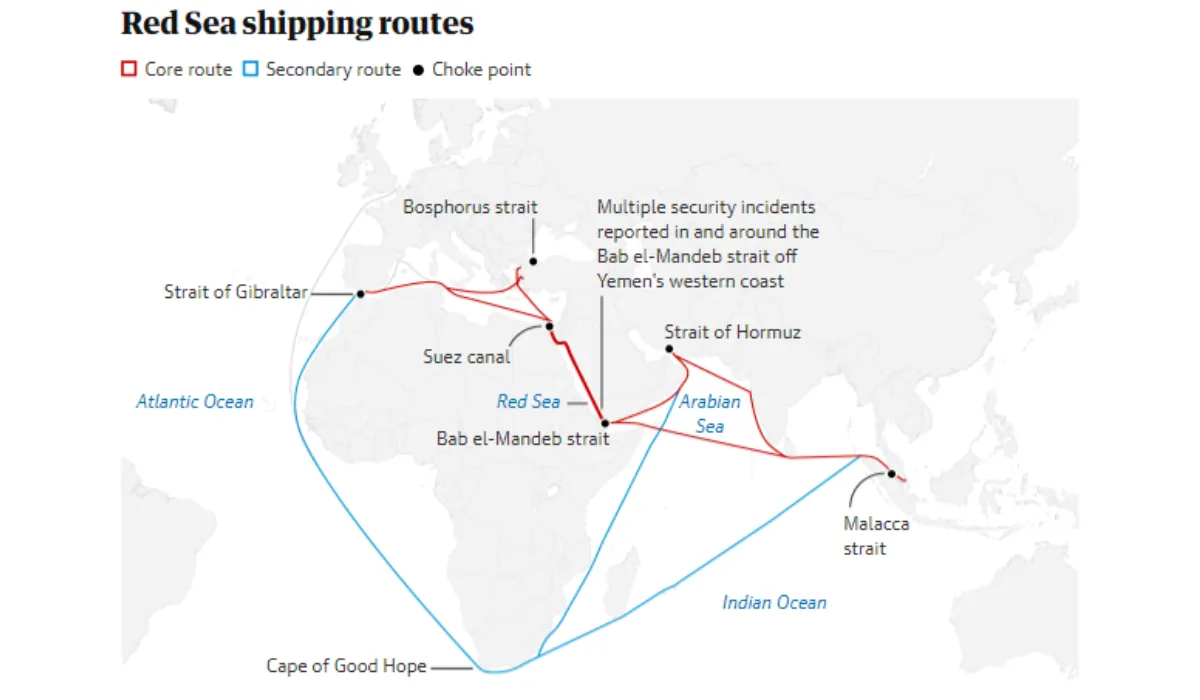The global maritime industry continues to grapple with significant disruptions as attacks in the Red Sea force ships to avoid the Suez Canal, according to recent reports from A.P. Moller-Maersk. The Danish shipping giant has highlighted the intensifying negative impact on maritime shipping and global supply chains.
Maersk's latest data reveals a staggering 66% decrease in vessels traversing the Suez Canal since carriers began diverting their ships around Africa. This rerouting adds approximately 3,000-3,500 nautical miles to each journey, significantly extending travel times and straining global logistics networks.
The Suez Canal, a crucial 193 km waterway connecting the Mediterranean and Red Seas, typically handles a substantial portion of global trade. In 2023, about 12% of worldwide commerce passed through this vital link between Asia and Europe. The current situation echoes the March 2021 Suez Canal blockage by the Ever Given, which underscored the waterway's critical importance to global trade.
The attacks, attributed to Iran-aligned Houthi militants, have disrupted a key east-west trade route, leading to a cascade of consequences. Maersk reports that these disruptions have resulted in service reconfigurations, volume shifts, infrastructure strain, port congestion, delays, and shortages in both capacity and equipment.
In July 2024, Maersk had already warned of a "cascading impact" causing congestion throughout its entire global network, extending beyond the Far East-Europe trade routes. The company now states that the timeline for resolving these disruptions and returning to normal operations remains uncertain.
Despite these challenges, Maersk notes that demand for container shipping remains robust. This resilience is particularly noteworthy given that maritime shipping accounts for over 80% of global trade by volume.
The situation in the Red Sea is exacerbating issues in a global supply chain that was already under strain from the COVID-19 pandemic in 2020-2021. The Bab el-Mandeb Strait, a key chokepoint connecting the Red Sea to the Gulf of Aden, has become a focal point of concern for shipping companies.
"These disruptions have led to service reconfigurations and volume shifts, straining infrastructure and resulting in port congestion, delays, and shortages in capacity and equipment."
As one of the world's largest container shipping lines, Maersk's operations span 130 countries with approximately 95,000 employees. The company's insights provide a crucial perspective on the global impact of the Red Sea disruptions.
The ongoing situation underscores the delicate nature of global supply chains and the far-reaching consequences of regional conflicts on international trade. As ships continue to reroute around the Cape of Good Hope, the maritime industry faces a period of uncertainty and adaptation.
